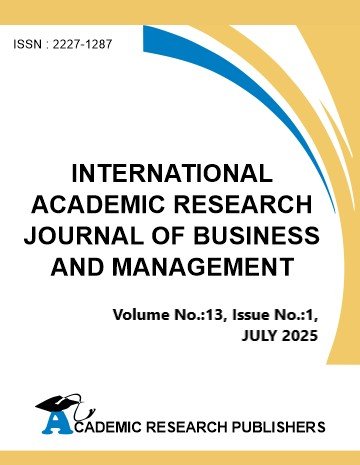The Influence Of Genetics on Job Satisfaction : A Narrative Literature Review
DOI:
https://doi.org/10.5281/zenodo.16942715Keywords:
Job Satisfaction, Genetic Predisposition, Workplace Interventions, Personality Traits, Organizational Behavior, Sustainable Development GoalAbstract
Job satisfaction plays a crucial role in employee well-being, retention, and organizational performance, yet global surveys show persistently low engagement levels that cost trillions annually. While extensive research has examined situational and environmental factors, the influence of genetic and biological traits on job satisfaction remains underexplored and fragmented. This paper aims to bridge that gap by reviewing and synthesizing existing literature on the genetic underpinnings of job satisfaction, highlighting how heritable traits interact with workplace conditions. Using a multidisciplinary narrative literature review approach, the study draws from psychology, behavioral genetics, and organizational behavior, focusing on peer-reviewed studies indexed in SCOPUS. Findings reveal that genetic factors account for a significant portion of variance in job satisfaction, primarily mediated by stable personality traits and affective dispositions, while also interacting dynamically with environmental factors. For practice, this suggests organizations can design more personalized recruitment and retention strategies; for academia, it expands research to integrate biological insights with workplace studies; and socially, it promotes healthier, more inclusive work environments. Overall, the paper aligns with the UN Sustainable Development Goals, especially SDG 3 (Good Health and Well-being) and SDG 8 (Decent Work and Economic Growth).

Downloads
Published
Issue
Section
License
Copyright (c) 2025 Academic Research Publishers

This work is licensed under a Creative Commons Attribution 4.0 International License.
